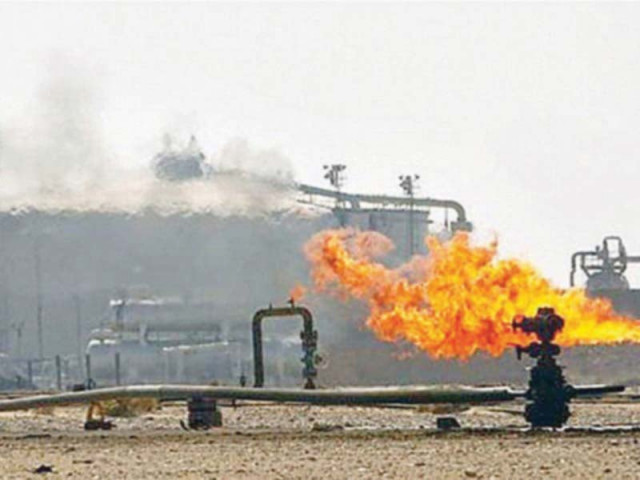Country becomes importer: No significant boost in gas production in 14 years
Ministry’s report, however, says oil reserves have shown a marked rise.

Ministry’s report, however, says oil reserves have shown a marked rise.
Contrary to the boost in gas production in some countries which are going to become net gas exporters, Pakistan has not recorded a significant jump in natural gas production in the last 14 years and its reserves have in fact dropped, resulting in acute shortages, officials say.
Though the United States, Australia and Russia have emerged as major producers of liquefied natural gas (LNG), Pakistan has become its importer for the first time in the wake of an insignificant increase in the country’s gas output.
State-owned exploration and production companies such as Oil and Gas Development Company (OGDC) are mostly contributing to the local hydrocarbon production as bureaucratic hurdles, inconsistent policies and poor law and order situation have forced some foreign firms to pull out of Pakistan.
According to officials, the gas deposits are drying up because of the flawed Petroleum Policy of 2001, which placed a cap on gas rates and wellhead prices stood lower at $2.5 per million British thermal units (mmbtu). All big discoveries of gas were made before 2000 including the Qadirpur gas field and after that the country saw no major gas find.
However, on the other hand, net reserves of oil have shown a marked increase in the last 14 years covering the period from 2001 to 2014.
In a monitoring and evaluation report submitted to the Economic Coordination Committee (ECC) of the cabinet, the Ministry of Petroleum and Natural Resources said Pakistan’s net gas reserves stood at 24 trillion cubic feet (tcf) in 2000-01, which dropped to 23.64 tcf.
It revealed that 17.7 tcf of gas was consumed from the reserves by the end of 2014. Apart from this, 17.4 tcf were added. The reserves left at the end of 2014 were 23.64 tcf.
However, the country fared better in terms of oil production. In 2000-01, oil reserves stood at 296 million barrels and the country consumed 323.31 million barrels until 2014. In the 14-year period, 380.81 million barrels were added to the reserves, which at the end of 2014 stood at 353.5 million barrels.
The petroleum ministry said 12 companies were engaged in the production of crude oil. Among these, OGDC had the highest share of around 50% as it produced 42,969 barrels of oil per day in 2013-14.
United Energy Pakistan contributed 15.5% to oil production, Pakistan Petroleum Limited (PPL) had a share of 7.4% and Hungarian oil and gas company MOL contributed 19.98%. The country’s total gas production is 4,092 million cubic feet per day (mmcfd). To this, two state-owned companies – OGDC and PPL – were the major contributors, churning out 1,171 mmcfd and 648 mmcfd respectively. Other major contributors were Eni Pakistan, Mari Petroleum Company Limited and OMV, which were producing 489 mmcfd, 593 mmcfd and 287 mmcfd to meet the domestic needs.
Published in The Express Tribune, April 9th, 2015.
Like Business on Facebook, follow @TribuneBiz on Twitter to stay informed and join in the conversation.



















COMMENTS
Comments are moderated and generally will be posted if they are on-topic and not abusive.
For more information, please see our Comments FAQ